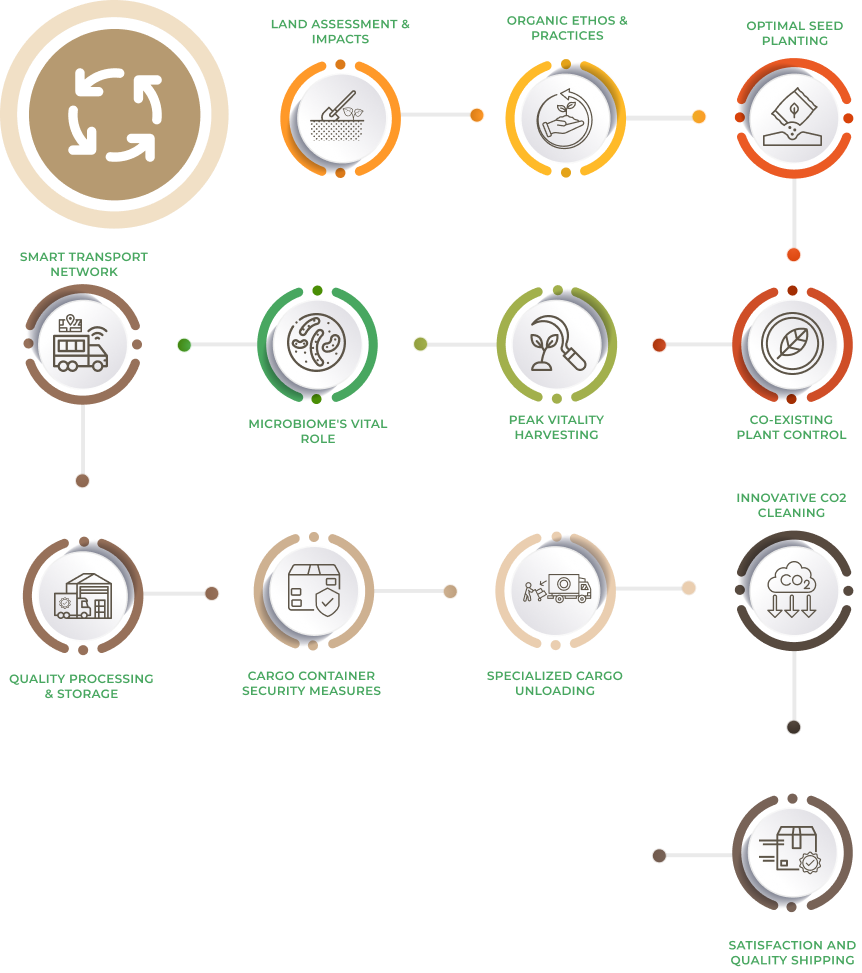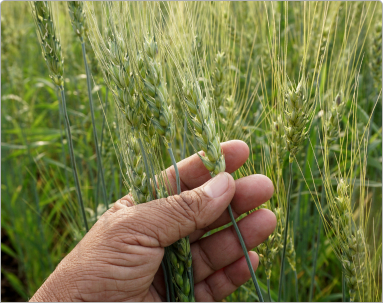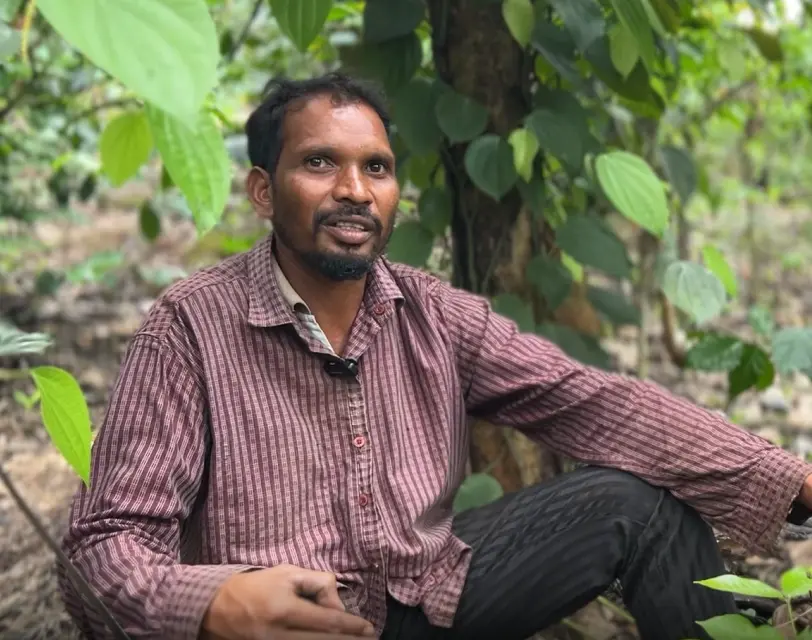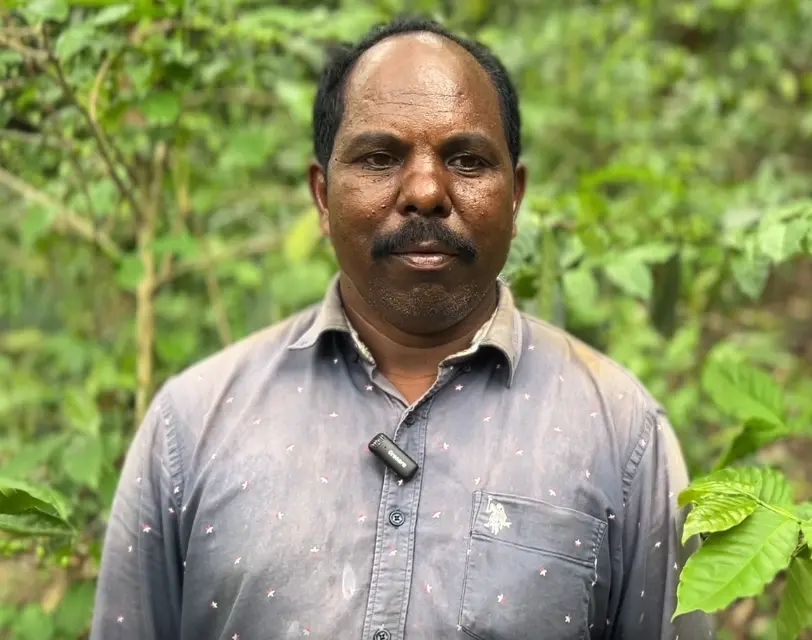Tucked within the lush embrace of the Eastern Ghats, Araku Valley is a region where nature and agriculture blend in harmony. Known for its stunning landscapes, this serene area in Andhra Pradesh is also the birthplace of one of the world’s finest organic Arabica coffees. More than just a crop, Araku’s coffee represents a commitment to sustainability, community empowerment, and a profound respect for the land that nurtures it.


At the core of Araku Valley’s coffee story lies the partnership between the land and its people. Nature Bio Foods’ endeavors on the land go beyond coffee—it’s about cultivating a way of life. Over 2,500 farmers, primarily from indigenous tribes, are at the forefront of this organic farming revolution. These farmers have perfected their craft, ensuring each bean is a true reflection of the valley’s rich soil and sustainable practices.
The farmers of Araku don’t just grow exceptional coffee; they build opportunities for a brighter future. With 465 hectares of aromatic soil dedicated to this endeavor, a limited edition of 80 metric tons of high-quality Arabica coffee beans is produced each year, showcasing the valley’s potential to the world.
Nurturing Arabica Coffee with The Local Community


All you should know about ARAKU Valley and ARABICA Coffee

High Elevation, High Quality- Geographic Significance of Araku Valley
Perched at an altitude of about 920 meters, Araku Valley’s unique geography provides the perfect environment for Arabica coffee to thrive. The sub-temperate climate, moderate temperatures, ample rainfall, and fertile soil all combine to create an ideal setting for coffee cultivation. This elevation doesn’t just ensure top-tier coffee quality—it also imparts a unique character to its flavor, making Araku coffee a prized choice in the global market.
Ecological Harmony and Coffee
Araku Valley’s coffee production is deeply intertwined with its surrounding ecosystem. The dense forests provide humus-rich soil, creating an environment where coffee plants can flourish. This ecological symbiosis, where flora and fauna work together in harmony, enhances both the quality of the coffee and the sustainability of the region. Nature Bio Foods’ initiative is committed to preserving this delicate balance, ensuring that exceptional coffee is produced without compromising the environment.

The Tribe
The indigenous communities of Araku Valley have long maintained a deep connection with their land, a bond rooted in generations of sustainable farming practices. These tribes play a pivotal role in growing the organic Arabica coffee that thrives here. Their dedication to organic methods and respect for nature help maintain the delicate ecological balance of the region.
Farming is not just a livelihood for these communities—it is a way of preserving their culture and traditions. By participating in community farming initiatives, they boost household incomes while sustaining their cultural legacy. This partnership with Nature Bio Foods empowers them to market their coffee on a global scale while safeguarding their heritage and environment for future generations.

G.I. Tag: A Mark of Distinction for Araku Coffee

Araku Valley’s organic Arabica Coffee proudly carries the prestigious Geographical Indication (G.I.) tag, a symbol of its unique origin and unmatched quality. This certification highlights not only the coffee’s exceptional flavor and aroma but also the traditional methods passed down through generations that go into its cultivation. The G.I. tag sets Araku coffee apart, offering a taste of the valley’s rich heritage to coffee lovers around the world.
The soil in Araku Valley is as much a part of the coffee-making process as the plants themselves. Enriched by natural forest processes, the acidic soil is rich in organic matter, creating the perfect conditions for Arabica coffee to absorb nutrients. This contributes to beans that are full of flavor and aroma, making Araku coffee a truly unique experience.
Self-Enriching Soil Profile

A Climate Crafted for Coffee

The sub-temperate climate of Araku Valley is another secret behind its coffee’s success. Mild temperatures and regular rainfall create the perfect conditions for coffee plants to flourish. Not only does this climate produce exceptional coffee, but it also makes the valley a beautiful destination for visitors seeking to enjoy its natural beauty and pleasant weather.
NPOP Certification
Araku Valley’s Arabica Coffee holds certification from the National Program for Organic Production (NPOP). This certification ensures that the farming practices here adhere to the highest organic standards, prohibiting the use of synthetic chemicals and GMOs while promoting sustainability and social responsibility. It’s a mark of the commitment to producing only the best organic coffee, grown with respect for both the land and the people who cultivate it.

Farm Water Availability
Water availability is a crucial aspect of organic agriculture in the NBF’s Araku Valley project. The farmers in this region heavily rely on various water sources to sustain their crops and ensure agricultural productivity. The nature of farm water availability in the Araku Valley can be characterized by the presence of rivers, streams, natural springs, and the adoption of water conservation practices.
The Araku Valley benefits from the proximity of rivers such as the Gosthani River, which flows through the region. These rivers serve as important sources of irrigation water for agricultural activities. Farmers in the valley utilize the river water through irrigation channels and canals, enabling them to supply water to their fields as needed. The abundant water resources from rivers contribute significantly to sustaining crop growth and ensuring a reliable water supply for farming operations.
In addition to rivers, the Araku Valley also benefits from streams and natural springs that are spread across the region. These water sources play a vital role in providing water for both irrigation and drinking purposes. Farmers in the valley tap into these natural water sources, utilizing them for crop irrigation, livestock watering, and other agricultural needs. The availability of streams and springs adds to the overall farm water accessibility in the region.
Nature of Farmers
Farmers in the Araku Valley possesses a deep connection with the land and a strong agricultural heritage. The nature of farmers in the Araku Valley can be characterized by their traditional farming practices, close-knit communities, and sustainable approach to agriculture.
The farmers in the Araku Valley are deeply rooted in the agricultural traditions passed down through generations. They have inherited knowledge and techniques from their ancestors, which they blend with modern farming methods to achieve a balance between tradition and innovation. These farmers have a profound understanding of the local climate, soil conditions, and crop requirements, enabling them to make informed decisions about planting, cultivation, and harvesting. The farming communities in the Araku Valley are tightly knit, and mutual support and collaboration are integral to their way of life. Farmers often work together during crucial phases of farming, such as sowing or harvesting, where they lend a helping hand to each other. This sense of community creates a spirit of camaraderie and solidarity among the farmers, strengthening their agricultural practices and resilience.
Furthermore, sustainability is a key aspect of farming in the Araku Valley. The farmers prioritize practices that promote the long-term health of the land and the conservation of natural resources. The nature of farmers in the Araku Valley reflects their dedication to preserving their agricultural heritage, fostering community bonds, and embracing sustainable farming practices. Their deep-rooted connection to the land, coupled with their traditional knowledge and sustainable approach, contributes to the region’s agricultural prosperity and the production of quality crops.

Crop Details
NBF Aarku Valley project grow several crops such as:
Kharif
Coffee, Chilli, Turmeric and Millets

Rabi
Chia, Chilli

Statistics
NBF Supply Chain

NBF Supply Chain

How to Visit the Heartland of Organic Arabica- Araku Valley

By Train
If you’re someone who enjoys a scenic journey, taking the train to Araku is a memorable experience. The Araku Railway Station, part of the Kothavalasa-Kirandul line, connects the valley with Visakhapatnam. The Vizag-Araku passenger train is a popular choice, offering breathtaking views as it snakes through tunnels and over bridges, revealing the natural splendor of the Eastern Ghats.

By Road
For a more personal experience, traveling by road allows you to fully absorb the beauty of the valley. The route from Visakhapatnam to Araku is lined with stunning vistas, and driving or taking a taxi lets you enjoy the winding ghat roads at your own pace.

By Air
If you’re coming from farther away, Visakhapatnam Airport is the closest gateway to Araku Valley, located just 112 kilometers away. Regular flights from major Indian cities make this an accessible option, with taxis and buses available for the final leg of the journey.

Location of the Project
Araku Valley is located in the Eastern Ghats of Andhra Pradesh, India. It lies at a distance of approximately 120 kilometers (75 miles) from the coastal city of Visakhapatnam. The valley is situated at an average elevation of around 920 meters (3,000 feet) above sea level. It is surrounded by lush green hills, dense forests, and cascading waterfalls, creating a picturesque and serene setting for visitors to enjoy. The region’s geographical location in the Eastern Ghats offers a unique blend of natural beauty, cultural heritage, and agricultural prosperity, making it a popular tourist destination in South India.
Nature Bio Food’s organic Arabica coffee plants are forest-grown. Forest soil, high in humus and beaming with microbiome contributes to the robust health of the plants that generate superior aroma and flavour. Self-enriching forest soil ensures most suitable soil acidity critically important for quality.
Coordinates: The approximate coordinates for Araku Valley are 18.3324°N latitude and 82.8605°E longitude.

Places to Visit in Araku Valley
Borra Caves
Just north of Araku Valley, you’ll find the Borra Caves. These spectacular natural caves, over a million years old, are one of the largest and deepest in India. The caves are known for their impressive stalactite and stalagmite formations. It’s an ideal place for geology enthusiasts and adventure lovers.
[/mvc_ihe]Katiki Waterfalls
About 30 kilometers from the Araku Valley, this is a stunning waterfall named after Katiki, the place where it originates. It’s an excellent spot for photography and picnics.
[/mvc_ihe]Tribal Museum
This is a must-visit to learn about the tribal cultures of the Eastern Ghats. The museum showcases the lifestyle, artifacts, and traditions of the local tribes. It offers a fascinating insight into the rich cultural heritage of Araku Valley.
[/mvc_ihe]Coffee Museum
The Coffee Museum in Araku Valley, Andhra Pradesh, is a notable attraction for coffee enthusiasts and tourists. The museum showcases the history of coffee cultivation in the Araku Valley, including the journey of coffee beans from plantation to cup. It features interactive exhibits that explain the coffee-making process, including roasting, grinding, and brewing.
[/mvc_ihe]

Elevation
It has an average elevation of roughly 920 meters.


River
The Gosthani River flows through the caves, which are located near NBF’s Araku Valley project in the Ananthagiri hill range.


Soil
Lateritic, black, sandy and red soil


Crop
Coffee, Turmeric,Chia,Foxtail Milets
Sustainability Efforts
Economic
| Women's Empowerment through Entrepreneurial Training Programs |
112 |
|
| Empowering Young Women: Career Counseling for Future Success |
243 |
|
| Craftsmanship Unleashed: Skill Development in Artisanal Handicrafts |
242 |
|
Social
| Nourishing the Future: Workshop on Child Nutrition and Well-being |
655 |
|
| Guiding the Leaders of Tomorrow: Mentoring Programs for Students |
234 |
|
Environmental
| Cultivating the Earth: Advanced Training in Soil Regeneration |
632 |
|
| Towards a Plastic-Free Future: Comprehensive Reduce and Reuse Initiatives |
234 |
|
| Preserving Our Lifeline: Campaigns for Water Conservation and Stewardship |
553 |
|
| Agriculture in Harmony with Nature: Organic Farming workshops |
544 |
|
| Clean Village, Healthy Village: Promoting Cleanliness and Sanitation at the Grassroots Level |
243 |
|
Our Impact

The Farmers
The farmers in Araku Valley are more than just coffee growers—they are caretakers of the land. Through their commitment to organic farming, they enrich the soil and reduce greenhouse gas emissions, all while producing high-quality coffee. Their efforts not only support the ecosystem but also ensure a sustainable future for generations to come.

The Tribe
The indigenous tribes of Araku Valley have farmed the land for generations, using organic and sustainable methods that nurture both the environment and their heritage. Their deep connection to the land is reflected in their coffee cultivation, where traditional practices ensure the soil’s health and biodiversity. Through this symbiotic relationship with nature, the tribes not only sustain their livelihoods but also preserve their cultural identity. In partnership with Nature Bio Foods, they receive support and resources to continue thriving, ensuring their unique, organic Arabica coffee reaches global markets while protecting their way of life.

The Partners
Our philosophy extends beyond simply doing business. At Nature Bio Foods, we see our customers as partners in a shared mission—to bring organic, sustainably produced food to the world. Together, we’re building a future where the benefits of organic farming are felt by everyone, from the farmers in Araku Valley to customers around the globe.





